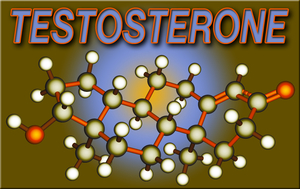Introduction
Growth hormone deficiency (GHD) in adult males can lead to a variety of health issues, including changes in body composition and metabolic function. Norditropin, a recombinant human growth hormone, has been utilized in the treatment of GHD. This article explores the impact of Norditropin on appetite and weight management in American men suffering from this condition.
Understanding Growth Hormone Deficiency
Growth hormone deficiency occurs when the pituitary gland does not produce sufficient growth hormone. In adult men, GHD can result in increased fat mass, decreased muscle mass, and altered lipid profiles. These changes can contribute to weight gain and difficulties with appetite control, impacting overall health and quality of life.
Norditropin and Its Mechanism of Action
Norditropin is a synthetic form of human growth hormone that mimics the action of the naturally occurring hormone. By supplementing the body's growth hormone levels, Norditropin aims to correct the metabolic imbalances associated with GHD. The hormone's effects include promoting lipolysis (fat breakdown), increasing muscle mass, and potentially influencing appetite regulation.
Impact on Appetite
Studies have shown that growth hormone therapy, including Norditropin, can affect appetite in various ways. Some patients report a decrease in appetite, which may be attributed to the hormone's role in regulating ghrelin, a hunger-stimulating hormone. Conversely, others may experience an increase in appetite due to improved metabolic function and energy levels. The individual response to Norditropin can vary, necessitating personalized treatment plans.
Weight Management Benefits
One of the primary benefits of Norditropin for men with GHD is its potential to aid in weight management. By promoting the breakdown of fat and the building of lean muscle mass, Norditropin can help shift body composition towards a healthier profile. This shift can lead to a reduction in overall body weight and an improvement in metabolic health markers, such as insulin sensitivity and lipid levels.
Clinical Evidence
Clinical trials have provided evidence supporting the use of Norditropin in managing weight in GHD patients. A study published in the *Journal of Clinical Endocrinology & Metabolism* found that adult GHD patients treated with Norditropin experienced significant reductions in fat mass and increases in lean body mass compared to placebo-treated controls. These changes were accompanied by improvements in metabolic parameters, suggesting a beneficial role in weight management.
Considerations and Monitoring
While Norditropin can be effective in managing weight and appetite in GHD patients, it is essential to monitor treatment closely. Regular assessments of body composition, metabolic markers, and patient-reported outcomes are crucial to tailoring therapy and ensuring safety. Side effects, though generally mild, can include fluid retention, joint pain, and changes in blood sugar levels, which should be managed appropriately.
Lifestyle Integration
For optimal results, Norditropin therapy should be integrated with a healthy lifestyle. This includes a balanced diet, regular physical activity, and adequate sleep. Such lifestyle modifications can enhance the effects of Norditropin on appetite and weight management, contributing to better overall health outcomes for American men with GHD.
Conclusion
Norditropin offers a promising treatment option for American men with growth hormone deficiency, particularly in managing appetite and weight. By addressing the metabolic imbalances associated with GHD, Norditropin can help improve body composition and metabolic health. However, individual responses vary, and ongoing monitoring and lifestyle adjustments are essential for maximizing the benefits of this therapy. As research continues, the role of Norditropin in the comprehensive management of GHD will likely become even more refined, offering hope for improved quality of life for affected individuals.
Contact Us Today For A Free Consultation

- Norditropin's Role in Combatting Metabolic Syndrome: A Comprehensive Review [Last Updated On: February 18th, 2025] [Originally Added On: February 18th, 2025]
- Norditropin: Enhancing Growth and Health in American Males with GHD [Last Updated On: February 21st, 2025] [Originally Added On: February 21st, 2025]
- Unveiling the Potential of Norditropin in Treating Growth Hormone Deficiency in Prader-Willi Syndrome [Last Updated On: March 5th, 2025] [Originally Added On: March 5th, 2025]
- Unveiling the Impact of Norditropin on Lipid Profiles in Men with Growth Hormone Deficiency [Last Updated On: March 15th, 2025] [Originally Added On: March 15th, 2025]
- Exploring the Efficacy of Norditropin in Treating Growth Hormone Deficiency Amid Gastrointestinal Challenges [Last Updated On: March 16th, 2025] [Originally Added On: March 16th, 2025]
- Norditropin's Impact on Eye Health in Growth Hormone Deficient American Males [Last Updated On: March 16th, 2025] [Originally Added On: March 16th, 2025]
- Unraveling the Impact of Norditropin on Thyroid Function in American Males with Growth Hormone Deficiency [Last Updated On: March 16th, 2025] [Originally Added On: March 16th, 2025]
- Exploring the Safety and Efficacy of Norditropin for Growth Hormone Replacement in Aging American Males [Last Updated On: March 16th, 2025] [Originally Added On: March 16th, 2025]
- Exploring the Impact of Norditropin on Urinary System Health in American Males with Growth Hormone Deficiency [Last Updated On: March 16th, 2025] [Originally Added On: March 16th, 2025]
- Norditropin Enhances Insulin Sensitivity in American Males with Growth Hormone Deficiency [Last Updated On: March 16th, 2025] [Originally Added On: March 16th, 2025]
- Norditropin Enhances Immune Function in Growth Hormone Deficient American Males [Last Updated On: March 17th, 2025] [Originally Added On: March 17th, 2025]
- Norditropin's Long-Term Safety for American Males with Growth Hormone Deficiency [Last Updated On: March 18th, 2025] [Originally Added On: March 18th, 2025]
- Norditropin Enhances Sleep Quality in American Males with Growth Hormone Deficiency [Last Updated On: March 19th, 2025] [Originally Added On: March 19th, 2025]
- Norditropin's Impact on Fertility in American Males with Growth Hormone Deficiency [Last Updated On: March 19th, 2025] [Originally Added On: March 19th, 2025]
- Norditropin: Enhancing Exercise Capacity in American Males with Growth Hormone Deficiency [Last Updated On: March 19th, 2025] [Originally Added On: March 19th, 2025]
- Norditropin: Enhancing Life for Male Cancer Survivors with Growth Hormone Deficiency [Last Updated On: March 21st, 2025] [Originally Added On: March 21st, 2025]
- Norditropin Therapy Enhances Skin Health in American Males with GHD [Last Updated On: March 21st, 2025] [Originally Added On: March 21st, 2025]
- Norditropin Enhances Wound Healing in American Males with Growth Hormone Deficiency [Last Updated On: March 21st, 2025] [Originally Added On: March 21st, 2025]
- Norditropin: Enhancing Cognitive Function in Adults with Growth Hormone Deficiency [Last Updated On: March 21st, 2025] [Originally Added On: March 21st, 2025]
- Norditropin Enhances Vision in American Males with Growth Hormone Deficiency [Last Updated On: March 22nd, 2025] [Originally Added On: March 22nd, 2025]
- Norditropin in Combination Therapies for GHD in American Males: Efficacy and Benefits [Last Updated On: March 22nd, 2025] [Originally Added On: March 22nd, 2025]
- Norditropin: Alleviating Fatigue in American Males with Growth Hormone Deficiency [Last Updated On: March 22nd, 2025] [Originally Added On: March 22nd, 2025]
- Norditropin: Enhancing Mood and Quality of Life in Men with Growth Hormone Deficiency [Last Updated On: March 22nd, 2025] [Originally Added On: March 22nd, 2025]
- Norditropin's Role in Managing Pain for American Males with Growth Hormone Deficiency [Last Updated On: March 22nd, 2025] [Originally Added On: March 22nd, 2025]
- Norditropin: Enhancing Life for American Males with GHD and Autoimmune Disorders [Last Updated On: March 22nd, 2025] [Originally Added On: March 22nd, 2025]
- Norditropin's Impact on Hair Growth in American Men with GHD: Efficacy and Benefits [Last Updated On: March 23rd, 2025] [Originally Added On: March 23rd, 2025]
- Norditropin Therapy: Effects on Adrenal Function in American Men with GHD [Last Updated On: March 23rd, 2025] [Originally Added On: March 23rd, 2025]
- Norditropin's Potential in Reducing Migraines for American Males with Growth Hormone Deficiency [Last Updated On: March 23rd, 2025] [Originally Added On: March 23rd, 2025]
- Norditropin: Reducing Anxiety in American Males with Growth Hormone Deficiency [Last Updated On: March 24th, 2025] [Originally Added On: March 24th, 2025]
- Norditropin's Role in Managing Growth Hormone Deficiency and Reducing Inflammation [Last Updated On: March 24th, 2025] [Originally Added On: March 24th, 2025]
- Norditropin's Impact on Cardiovascular Health in American Men with Growth Hormone Deficiency [Last Updated On: March 24th, 2025] [Originally Added On: March 24th, 2025]
- Norditropin's Potential to Reduce Ear Infections in American Males with GHD [Last Updated On: March 24th, 2025] [Originally Added On: March 24th, 2025]
- Norditropin Enhances Balance and Coordination in American Men with Growth Hormone Deficiency [Last Updated On: March 24th, 2025] [Originally Added On: March 24th, 2025]
- Norditropin Reduces Allergic Reactions in American Males with Growth Hormone Deficiency [Last Updated On: March 25th, 2025] [Originally Added On: March 25th, 2025]
- Norditropin Therapy's Impact on Dental Health in American Males with GHD [Last Updated On: March 25th, 2025] [Originally Added On: March 25th, 2025]
- Norditropin Enhances Skin Elasticity in American Men with Growth Hormone Deficiency [Last Updated On: March 25th, 2025] [Originally Added On: March 25th, 2025]
- Norditropin Therapy Enhances Digestive Health in American Men with GHD [Last Updated On: March 25th, 2025] [Originally Added On: March 25th, 2025]
- Norditropin's Impact on Hearing in American Men with Growth Hormone Deficiency [Last Updated On: March 25th, 2025] [Originally Added On: March 25th, 2025]
- Norditropin Therapy's Impact on Kidney Function in American Men with GHD [Last Updated On: March 25th, 2025] [Originally Added On: March 25th, 2025]
- Norditropin's Potential Antidepressant Effects in American Men with Growth Hormone Deficiency [Last Updated On: March 25th, 2025] [Originally Added On: March 25th, 2025]
- Norditropin: Enhancing Liver Function in American Males with Growth Hormone Deficiency [Last Updated On: March 26th, 2025] [Originally Added On: March 26th, 2025]
- Norditropin Enhances Memory in American Males with Growth Hormone Deficiency [Last Updated On: March 26th, 2025] [Originally Added On: March 26th, 2025]
- Norditropin's Impact on Thyroid Function in American Men with GHD [Last Updated On: March 26th, 2025] [Originally Added On: March 26th, 2025]
- Norditropin Enhances Eye Health in American Males with Growth Hormone Deficiency [Last Updated On: March 26th, 2025] [Originally Added On: March 26th, 2025]
- Norditropin Therapy Enhances Muscle Health in American Males with GHD [Last Updated On: March 26th, 2025] [Originally Added On: March 26th, 2025]
- Norditropin Enhances Respiratory Function in American Males with Growth Hormone Deficiency [Last Updated On: March 26th, 2025] [Originally Added On: March 26th, 2025]
- Norditropin's Impact on Joint Health in American Males with Growth Hormone Deficiency [Last Updated On: March 26th, 2025] [Originally Added On: March 26th, 2025]
- Norditropin Reduces Osteoporosis Risk in American Males with Growth Hormone Deficiency [Last Updated On: March 26th, 2025] [Originally Added On: March 26th, 2025]
- Norditropin Enhances Throat Health in American Males with Growth Hormone Deficiency [Last Updated On: March 27th, 2025] [Originally Added On: March 27th, 2025]
- Norditropin: Enhancing Life Quality in American Males with GHD and Neurological Disorders [Last Updated On: March 27th, 2025] [Originally Added On: March 27th, 2025]
- Norditropin Therapy Enhances Hair Quality in American Men with Growth Hormone Deficiency [Last Updated On: March 27th, 2025] [Originally Added On: March 27th, 2025]
- Norditropin Therapy Enhances Sexual Health in American Men with Growth Hormone Deficiency [Last Updated On: March 27th, 2025] [Originally Added On: March 27th, 2025]
- Norditropin Enhances Nail Health in American Men with Growth Hormone Deficiency [Last Updated On: March 27th, 2025] [Originally Added On: March 27th, 2025]
- Norditropin: Treating Growth Hormone Deficiency in Gastrointestinal Disorder Patients [Last Updated On: March 28th, 2025] [Originally Added On: March 28th, 2025]
- Norditropin Enhances Lung Function in American Men with Growth Hormone Deficiency [Last Updated On: March 28th, 2025] [Originally Added On: March 28th, 2025]
- Norditropin's Impact on Heart Health in American Men with Growth Hormone Deficiency [Last Updated On: March 29th, 2025] [Originally Added On: March 29th, 2025]
- Norditropin's Impact on Nasal Health in American Men with Growth Hormone Deficiency [Last Updated On: March 30th, 2025] [Originally Added On: March 30th, 2025]
- Norditropin's Potential in Reducing Sinus Issues in American Males with GHD [Last Updated On: March 30th, 2025] [Originally Added On: March 30th, 2025]
- Norditropin: Enhancing Growth and Respiratory Health in American Males with GHD [Last Updated On: March 31st, 2025] [Originally Added On: March 31st, 2025]
- Norditropin Therapy Enhances Vascular Health in American Males with Growth Hormone Deficiency [Last Updated On: April 2nd, 2025] [Originally Added On: April 2nd, 2025]
- Norditropin's Dual Benefits: Enhancing GHD and Anemia Treatment in American Males [Last Updated On: April 2nd, 2025] [Originally Added On: April 2nd, 2025]
- Norditropin's Impact on Lymphatic Health in American Males with GHD [Last Updated On: April 3rd, 2025] [Originally Added On: April 3rd, 2025]
- Norditropin Enhances Blood Health in American Men with Growth Hormone Deficiency [Last Updated On: April 5th, 2025] [Originally Added On: April 5th, 2025]
- Norditropin Therapy Enhances Immune Health in American Males with GHD [Last Updated On: April 6th, 2025] [Originally Added On: April 6th, 2025]
- Norditropin's Role in Managing Growth Hormone Deficiency with Allergic Disorders [Last Updated On: April 6th, 2025] [Originally Added On: April 6th, 2025]
- Norditropin's Potential in Managing Autoimmune Symptoms in GHD American Men [Last Updated On: April 8th, 2025] [Originally Added On: April 8th, 2025]
- Norditropin: Enhancing Life Quality in Men with Growth Hormone Deficiency [Last Updated On: April 9th, 2025] [Originally Added On: April 9th, 2025]
- Norditropin Enhances Neurological Health in Growth Hormone Deficient American Males [Last Updated On: April 9th, 2025] [Originally Added On: April 9th, 2025]
- Norditropin Therapy Enhances Urinary Health in American Males with GHD [Last Updated On: April 10th, 2025] [Originally Added On: April 10th, 2025]
- Norditropin Enhances Digestive Health in American Males with Growth Hormone Deficiency [Last Updated On: April 10th, 2025] [Originally Added On: April 10th, 2025]
- Norditropin Therapy Enhances Musculoskeletal Health in American Males with GHD [Last Updated On: April 10th, 2025] [Originally Added On: April 10th, 2025]
- Norditropin's Potential in Enhancing Skin Health for American Males with GHD [Last Updated On: April 10th, 2025] [Originally Added On: April 10th, 2025]
- Norditropin Therapy: Impacts on Reproductive Health in American Men with GHD [Last Updated On: April 11th, 2025] [Originally Added On: April 11th, 2025]
- Norditropin: Enhancing GHD Treatment in American Males with Skin Disorders [Last Updated On: April 11th, 2025] [Originally Added On: April 11th, 2025]
- Norditropin's Potential in Enhancing Gastrointestinal Health for Males with GHD [Last Updated On: April 11th, 2025] [Originally Added On: April 11th, 2025]
- Norditropin's Potential to Reduce Hearing Loss in American Males with GHD [Last Updated On: April 15th, 2025] [Originally Added On: April 15th, 2025]
- Norditropin: Treating Growth Hormone Deficiency in Patients with Respiratory Disorders [Last Updated On: April 16th, 2025] [Originally Added On: April 16th, 2025]
- Norditropin Therapy Enhances Eye Health in American Males with Growth Hormone Deficiency [Last Updated On: April 16th, 2025] [Originally Added On: April 16th, 2025]
- Norditropin Therapy Enhances Throat Health in American Males with Growth Hormone Deficiency [Last Updated On: April 17th, 2025] [Originally Added On: April 17th, 2025]
- Norditropin's Potential in Reducing Sinus Issues for American Men with GHD [Last Updated On: April 17th, 2025] [Originally Added On: April 17th, 2025]
Word Count: 570



















